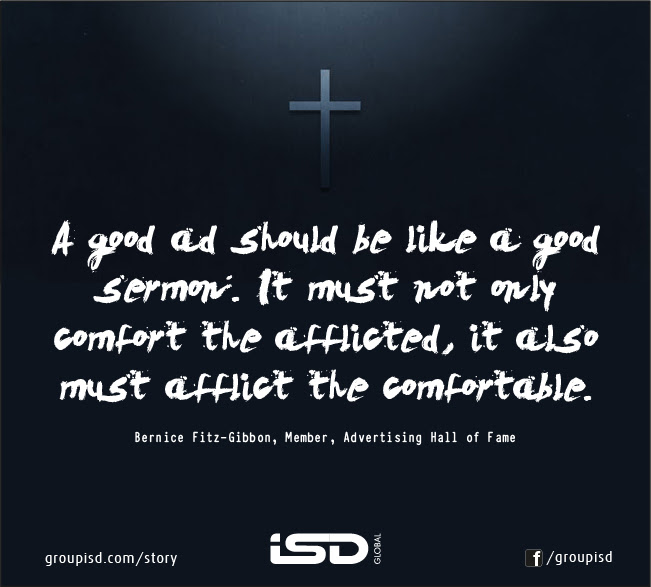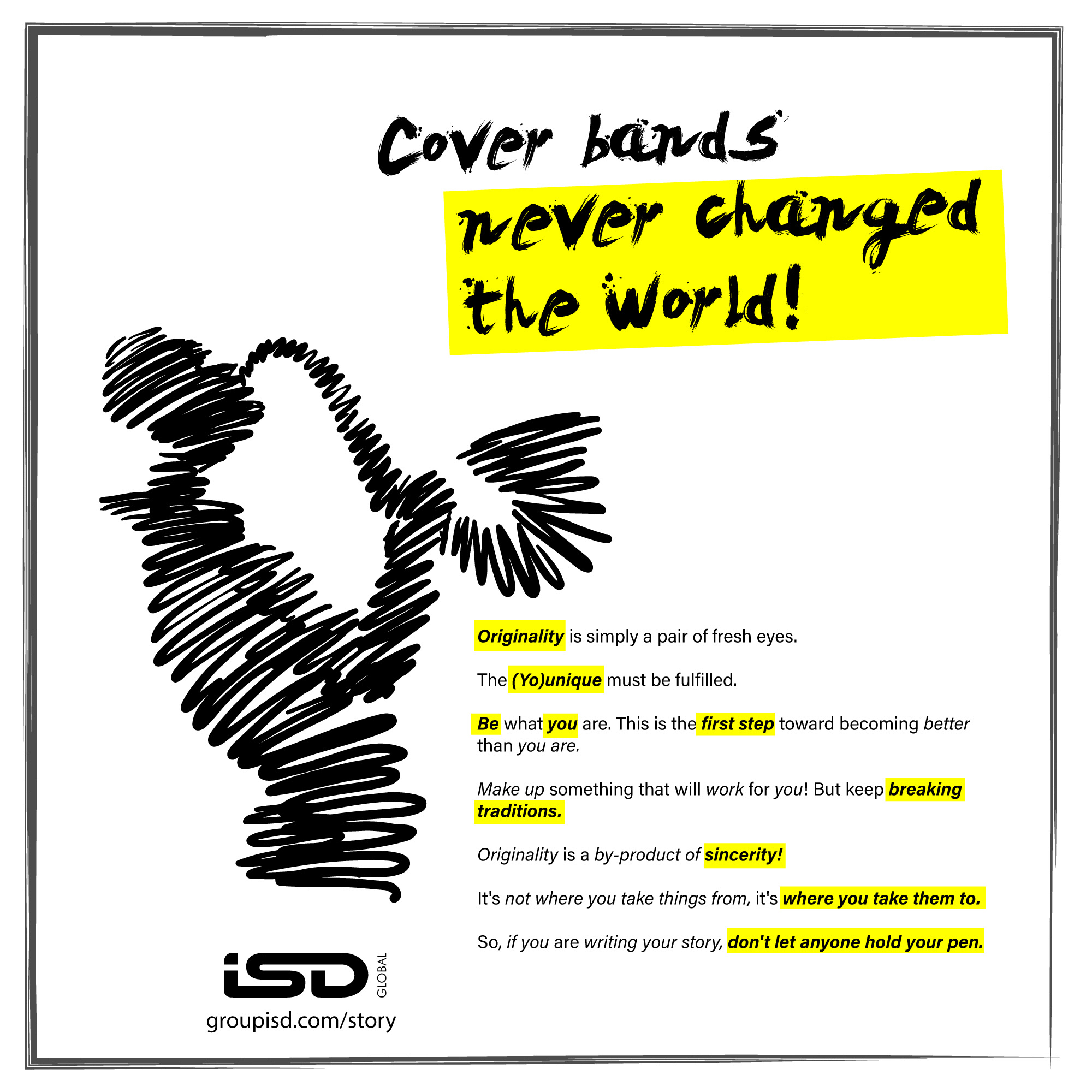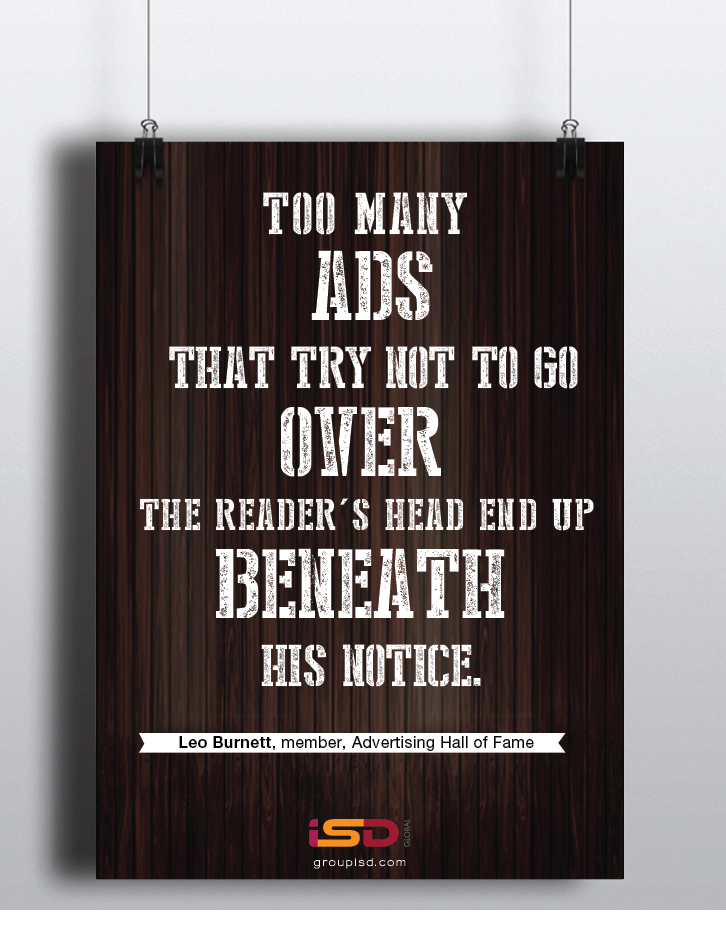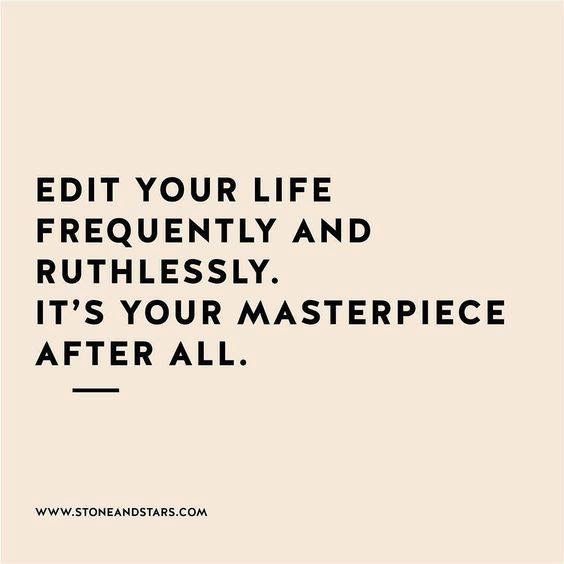The Creative Apocalypse: Preparing your Client!
There is great, there is good and there is average (ok).
Superlative. Comparative. Relative. Most of us want (at least there is good enough intent!) to do good work and over a period of time how that transmits to average and below remains an unsolved mystery. Have we ever started out saying; ” Let’s do some Great Work “? No one came into the profession thinking ‘I really want to produce work that’s a bit meh, a bit vanilla, that makes no impact on the world and sinks without a trace.’ So how come we don’t see brave creative work that often? The occasional breakthrough shines like a lighthouse across a lacklustre sea of work that is often undeniably boring, weirdly familiar or just more than a little disappointing.

So how is the end game playing out? It’s a whole new world out there. Recession or no recession- there is a perennial pressure on budgets and jobs. The ‘always on’ shifting media landscape and the move from broadcasting messages to managing conversations. The balancing of brand, ROI and an increasing reliance on data and metrics. There is safety in numbers (metrics reloaded!). Data is the new oil. And that too is now old hat. And how! All of these things have stitched together a sinister conspiracy in the last 10 years or so and made it more difficult for creatively brave work to ever see the light today(with some exceptions of course). It takes real balls for a client, or an agency, to take a leap of faith in this climate. Till then, it’s a lip of fate! And sealed at that. ‘ Faith accompli ‘ anyone?
Where does the skull drudgery end? What can be done? Selling creatively brave ideas requires an ability to promote the safety of risky situations (don’t miss the contradiction here), psychological management skills and a client that can hold their nerve (while letting go of her purse strings!). Sometimes you have to help hold it for them.

This situation provides both agency and the client an absolutely perfect platform to do creative tango. So here is the brief(in vest in it!): Depart from norm(it’s the mandatory new normal, so no big deal), break free from convention whilst remaining true to creating lasting campaign impact and brand recall. Surprise, delight, coerce, intimidate, purposefully provoke, question and come back to do more of the same. The brain remembers only what it least expects. So, deliver the unexpected. Don’t just hand hold the client, hold her heart and get to your customers’ soul in the process. That soul stirring exercise should be your sole purpose.
USP(Unique Selling Proposition) is passe, dead and buried. The time is about creating UFP( Unique Feeling Proposition).
WANTED: Creative Bravehearts. On both sides. Ready to take the leap?


